Position: Home> Media Center > Events
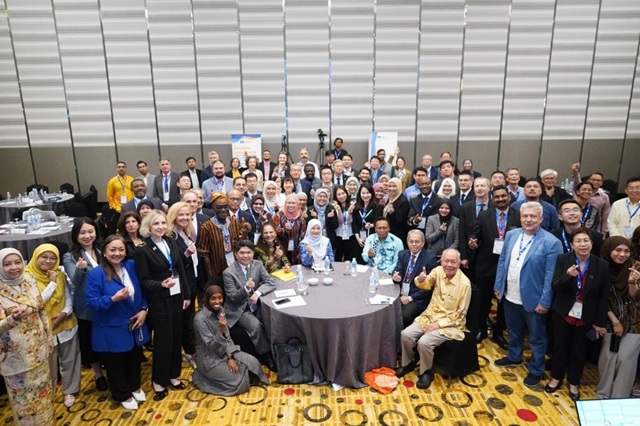
From May 15 to 17, 2024, the International Symposium of the Category 2 Institutes and Centres under the auspices of UNESCO in the field of Natural Sciences was held in Kuala Lumpur, Malaysia, which was hosted by the International Science, Technology and Innovation Centre for South-South Cooperation under the auspices of UNESCO (ISTIC). The participants included Lidia Brito, UNESCO Assistant Director-General for Natural Sciences, Fadhlina Sidek, Minister of Education of Malaysia and President of the Malaysian National Committee, CHANG Lih Kang, Minister of Science, Technology and Innovation of Malaysia, LEE Yee Cheong, Founding Chairman of the ISTIC Council, Mohd Basyaruddin Abdul Rahman, Chairman of the ISTIC Council, and Ezra Clark and ZHAO Jing, the representatives from UNESCO headquarters, as well as representatives from UNESCO Category 2 institutes and centres around the world. ICEE’s Associate Professor of Research and Assistant to Secretary-General Dr. QIAO Weifeng, Assistant to Secretary-General Dr. XU Lihui, and Postdoctoral Fellow FU Jie attended the symposium on behalf of the ICEE.
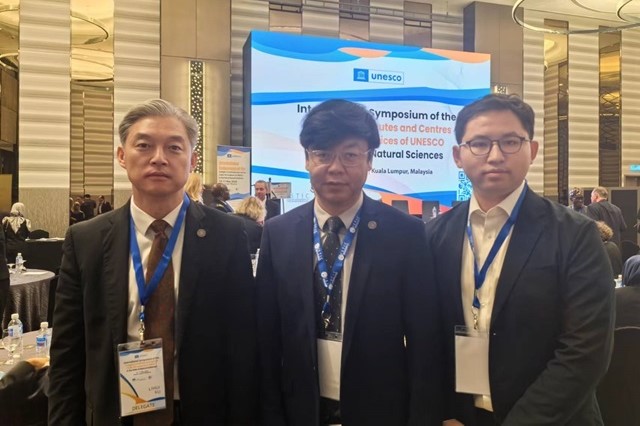
ICEE Team at the Symposium
This international symposium aimed to promote the coordination and cooperation among the Category 2 institutes and centres under the auspices of UNESCO, advance scientific and technological exchanges and facilitate collective actions for sustainable development in order to achieve common goals. It focused on three main themes: (1) Open Science. The principles and practices of open science were explored, with an emphasis on transparency, cooperation and accessibility in research. (2) International Scientific Cooperation. Discussions were conducted around the potential of collaborative research to leverage diverse expertise and resources for innovative and sustainable solutions. (3) International Decade of Sciences for Sustainable Development (IDSSD). Discussions focused on the strategies and objectives for implementing sustainable practices in natural sciences. The special sessions covered a variety of topics, including open science, international scientific cooperation, science policy, water science, earth science, biosphere reserves, disaster risk reduction and basic sciences.
At the symposium, the ICEE team conducted in-depth exchanges with Ms. Lidia Brito and Mr. LEE Yee Cheong, respectively, and all parties expressed their willingness to continue to strengthen exchanges and cooperation in the future.
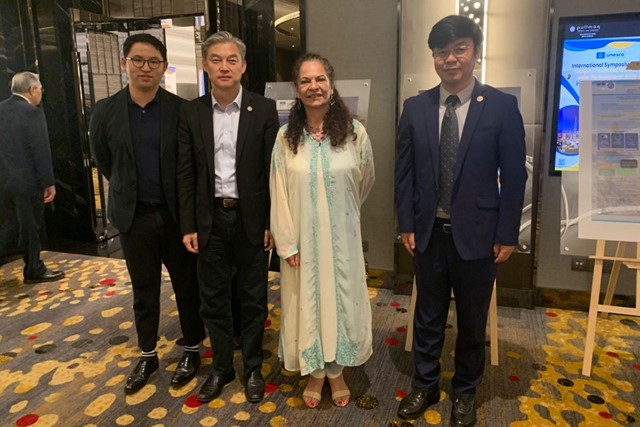
A group photo of the ICEE team and Lidia Brito
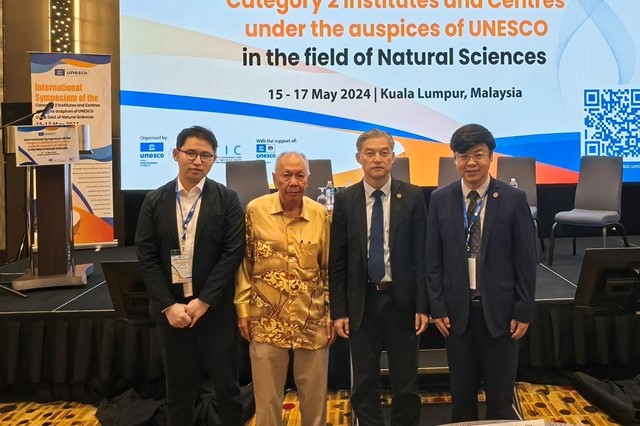
A group photo of the ICEE team and LEE Yee Cheong
On the afternoon of May 16, QIAO Weifeng delivered a report at the thematic meeting titled “Transformative Engineering Capacity Building for Sustainable Development Goals (SDGs)”. He introduced ICEE’s actions and achievements in consultation and research, engineering capacity building and international exchanges, and made recommendations for the Category 2 institutes and centres under the auspices of UNESCO in the field of natural sciences to collaborate in capacity building in developing countries and contribute to sustainable development.
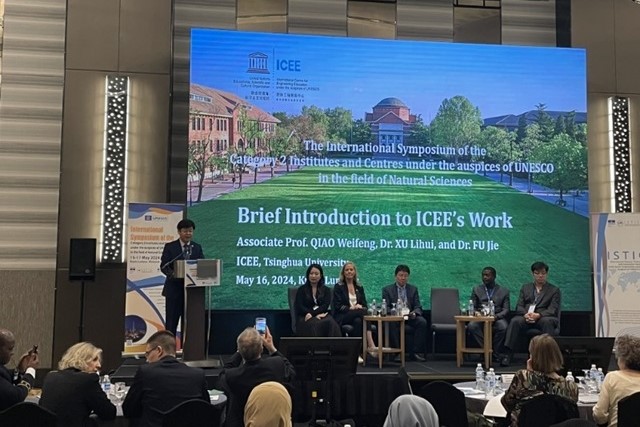
QIAO Weifeng Delivers a Report
The symposium featured a session showcasing the achievements of Category 2 institutes and centres. The ICEE team introduced the main work of ICEE in recent years in detail, including the joint release of Engineering Report II with UNESCO, to a number of guests, such as the Minister of Education and the Minister of Science, Technology and Innovation of Malaysia. During the symposium, the ICEE team and ISTIC had an in-depth communication on the preparations for the 5th International Forum on Women in Sci-tech Innovation and Economy to be held jointly by the two sides in Beijing in December 2024.
This symposium not only strengthened the academic exchanges, cooperation and contact between ICEE and the Category 2 institutes and centres under the auspices of UNESCO in the field of natural sciences, but also laid a foundation for further international cooperation programs in the future. ICEE will further deepen international cooperation in future research work, promote continuous innovation and development in the fields of engineering education and natural sciences, and contribute to the realization of the U.N. SDGs.
 京公网安备 110402430053 号
京公网安备 110402430053 号